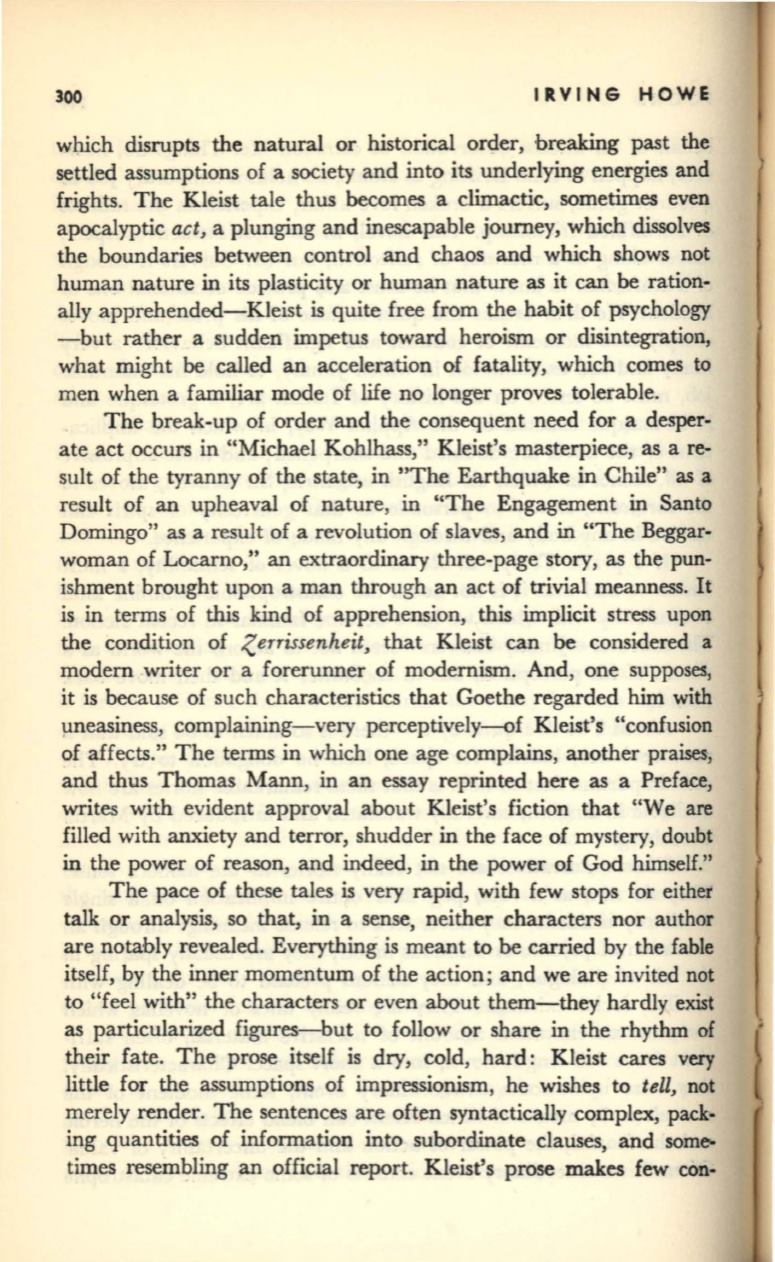
300
IRVINE; HOWE
which disrupts the natural or historical order, breaking past the
settled assumptions of a society and into its underlying energies and
frights. The Kleist tale thus becomes a climactic, sometimes even
apocalyptic
act,
a plunging and inescapable journey, which dissolves
the boundaries between control and chaos and which shows not
human nature in its plasticity or human nature as it can be ration–
ally apprehended-Kleist is quite free from the habit of psychology
-but rather a sudden impetus toward heroism or disintegration,
what might be called an acceleration of fatality, which comes to
men when a familiar mode of life no longer proves tolerable.
The break-up of order and the consequent need for a desper–
ate act occurs in "Michael Kohlhass," Kleist's masterpiece, as a re–
sult of the tyranny of the state, in "The Earthquake in Chile" as a
result of an upheaval of nature, in "The Engagement in Santo
Domingo" as a result of a revolution of slaves, and in "The Beggar–
woman of Locarno," an extraordinary three-page story, as the pun–
ishment brought upon a man through an act of trivial meanness.
It
is in terms of this kind of apprehension, this implicit stress upon
the condition of
.(errissenheit,
that Kleist can be considered a
modern writer or a forerunner of modernism. And, one supposes,
it is because of such characteristics that Goethe regarded
him
with
]measiness, complaining-very perceptively--of Kleist's "confusion
of affects." The terms in which one age comp-Iains, another praises,
and thus Thomas Mann, in an essay reprinted here as a Preface,
writes with evident approval about Kleist's fiction that "We are
filled with anxiety and terror, shudder in the face of mystery, doubt
in the power of reason, and indeed, in the power of God himself."
The pace of these tales is very rapid, with few stops for either
talk or analysis, so that, in a sense, neither characters nor author
are notably revealed. Everything is meant to
be
carried by the fable
itself, by the inner momentum of the action; and we are invited not
to "feel with" the characters or even about them-they hardly exist
as particularized figures-but to follow or share in the rhythm of
their fate. The prose itself is dry, cold, hard: Kleist cares very
little for the assumptions of impressionism, he wishes to
tell,
not
merely render. The sentences are often syntactically complex, pack–
ing quantities of information into subordinate clauses, and some–
times resembling an official report. Kleist's prose makes few con-


